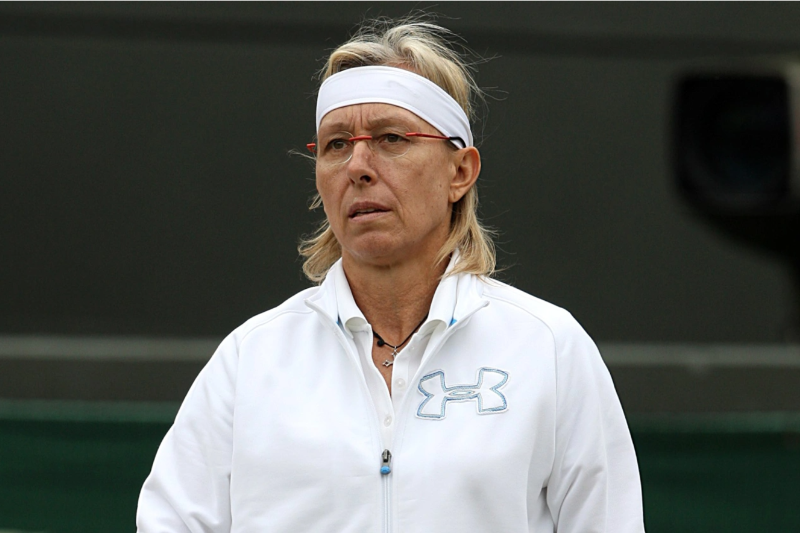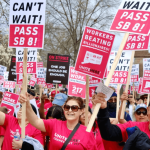
martina navratilova condemns reporting on transgender athletes in women’s sports
Tennis great Martina Navratilova has lent her voice to the continuing discussion over transgender athlete inclusion in women’s sports. Her most recent critique is on a recent New York Times piece covering issues in women’s collegiate volleyball, especially the mounting criticism directed toward transgender athlete Blaire Fleming of San Jose State University. Navratilova objected to the publication’s usage of the word “non-transgender women” to characterize biological females, therefore igniting a contentious debate about terminology, justice, and sports representation.
Just Women Will Do: Navratilova’s Reaction
Strongly reacting to the Times piece, Navratilova is a vocal supporter of women’s sports and fairness. She posted on X (previously Twitter) “NYT—you stink. Not TRANSGendered WOMEN, we are women. Just WOMEN will do going forward.”
Her response captures a more general annoyance among opponents who contend that the language used to characterize biological women reduces their identity and generates needless divisions. The article’s emphasis on different testosterone levels and their effects on sports performance just served to feed the issue by generating responses from both sides.
Volley Forfeits Trigger Controversy
With several Mountain West Conference schools refusing to play San Jose State, the debate around Fleming has grown more intense over the women’s college volleyball season. Although official remarks usually avoid direct allusions to Fleming, safety issues have been mentioned as the main cause of these forfeits.
Recently making news for withdrawing from the conference championship quarterfinal, Boise State University said its players “should not have to forgo this opportunity while waiting for a more thoughtful and better system that serves all athletes.” Their choice has automatically sent San Jose State into the title game, but it has also sharpened the focus on Fleming and the NCAA’s rules on transgender athletes.
Similar losses have befall the Spartans over the season; six regular-season games were declared as “no contests” following rival team refusals to use the court. Although Fleming has not been specifically mentioned in many formal announcements, her membership on the squad is generally accepted as the impetus for these choices.
Legal Conflict and institutional criticism
Apart from separating the sporting community, the circumstances have resulted in other legal issues. Fleming has been the focal point of a class-action lawsuit brought by her own colleagues, who assert her involvement goes against rules forbidding sex-based discrimination. Targeting San Jose State’s head coach, Melissa Batie-Smoose, and the NCAA, the lawsuit also demands Fleming be declared ineligible for the conference tournament.
But a federal judge recently decided against the lawsuit. Emphasizing that such a move would cause uncertainty, disturb months of preparation, and unfairly disadvantage San Jose State and other competing teams, Judge Kato Crews decided that the motion to remove Fleming from the tournament was “not reasonable.”
The removal has not quieted detractors. Suspended by the university for voicing concerns over Fleming’s participation, Batie-Smoose accused San Jose State of trying to “silence” her. Her suspension has created yet another source of contention in the larger discussion since supporters contend that her behavior reflects reasonable concerns about fairness and player safety.
NCAA Understood More Broad Criticism
More than a dozen female athletes have separately sued the NCAA claiming it violated Title IX, a federal provision forbidding sex-based discrimination in sports and education. The plaintiffs contend that the NCAA’s rules on transgender athletes compromise rights for biological women, therefore producing an unfair playing field.
These legal challenges have brought the NCAA front and center and compelled it to face increasing criticism from coaches, players, and advocacy organizations. Although the company has justified its rules as a means of striking a compromise between diversity and justice, certain stakeholders object to them still.
Keep Reading
A more general pattern of controversy
Fleming’s situation is not the first to spark arguments regarding transgender athletes in elite sports. Navratilova has already spoken out on related subjects, including the debate over Algerian fighter Imane Khelif. After a leaked medical report revealed Khelif, an Olympic female competitor, displayed male traits, she was accused of being a biological man.
Seizing on the dubious story, Navratilova wrote on X: “Imane might have been raised as a woman, but Imane is a biological male and should not have been allowed to box at the Olympics.”
Though it hasn’t been formally confirmed, the leaked research has sparked debates on the standards for gender eligibility in international sports. Since then, Khelif has complained about cyberbullying in France, mentioning well-known detractors including Elon Musk and J.K. Rowling. Navratilova questioned the chances of success of the lawsuit and discounted it with cynicism.
The argument about language
Navratilova’s critique was sparked by a New York Times piece that emphasizes even more how language shapes public opinion. Using the term “non-transgender women,” the magazine sought to emphasize clear differences, but it unintentionally alienated a good number of its readers. Such language, according to critics, marginalizes biological women and suggests that their identity needs qualifications.
Proponents of the phrase, however, argue that it attempts to produce inclusive vocabulary acknowledging the variety of identities in contemporary sports. This linguistic gap reflects the larger conflicts around transgender inclusion in sports, where issues of fairness, safety, and representation sometimes clash.
A Crossroads in Women’s Athletics
For women’s sports, the discussion regarding transgender athletes marks a turning point. Organizations such the NCAA, international federations, and collegiate programs struggle with the complexity of inclusion and are under more and more pressure to create fair and clear rules.
Although Navratilova’s candid approach has attracted both compliments and criticism, it has unquestionably kept the dialogue open. Her activism challenges institutions to face tough issues concerning gender, identity, and competition while reflecting a strong will to maintain the integrity of women’s sports.
The sports world stays at a crossroads as examples like Fleming’s develop, where the quest of inclusivity has to be weighed with the ideas of fairness and safety. The way these problems are resolved will define athletics going forward and create standards that go much beyond the tennis court or the volleyball floor.










